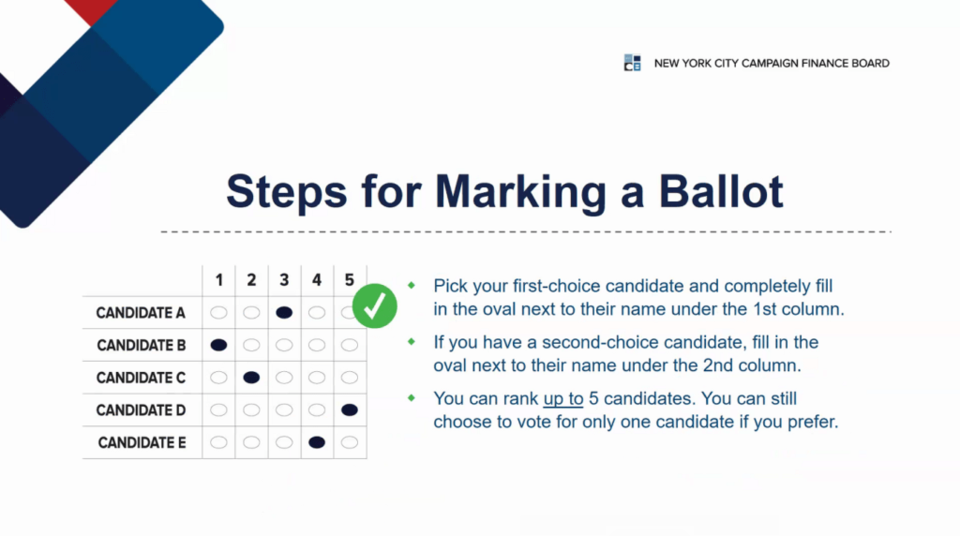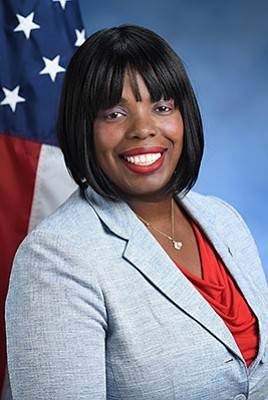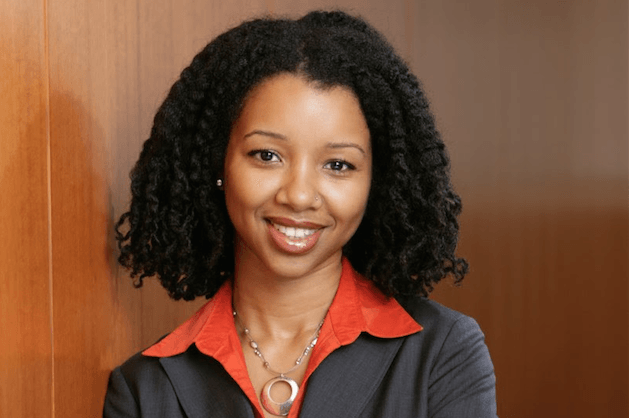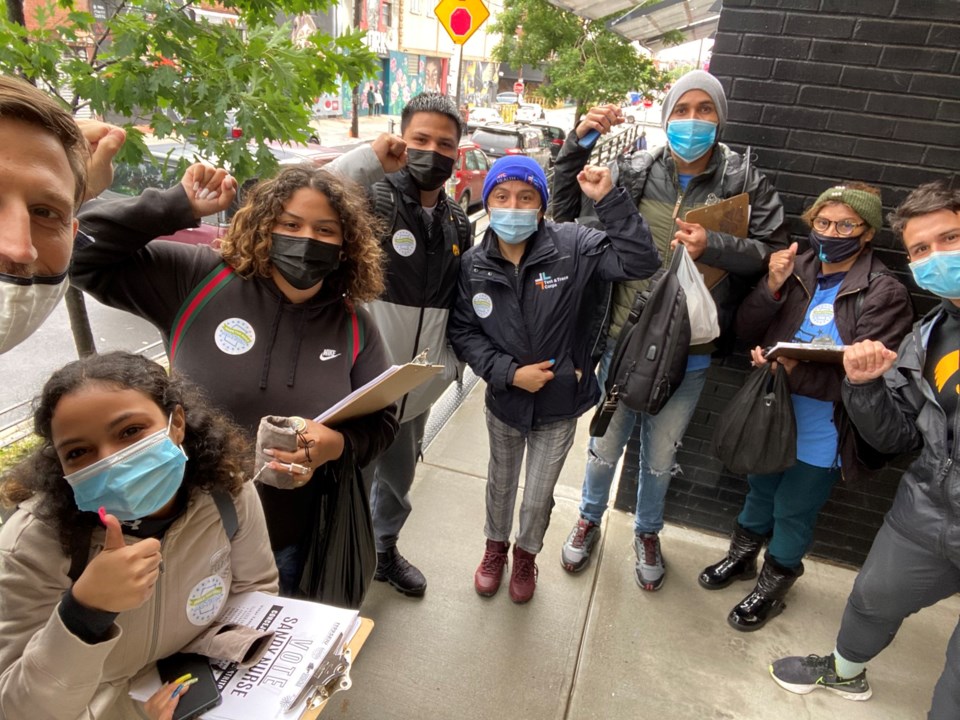For some Brooklyn voters, the city's new ranked-choice voting process was a bumpy ride.
"It was a mixed bag," Assemblymember Latrice Walker told BK Reader about her constituents' first encounter with RCV.
Many voters in her district, centered in Brownsville, first learned about RCV when they went to their polling station to cast a ballot. In some cases, the voters got frustrated with the process and returned the ballot to the election administrator, she said.
Others came to the polls knowing that they could rank up to five candidates based on their preference, and it all went smoothly.
Meanwhile, the New York City Board of Elections (BOE) created its own problems, mistakenly releasing incorrect early results that included 135,000 test ballots.
Walker, who chairs the Assembly's Election Law Committee, will convene a hearing on July 19 to allow community stakeholders and voters to share their experiences.
Turnout
At a June 23 press conference, Mayor Bill de Blasio touted the "very healthy turnout" for the 2021 primary election across the city, given that COVID-19 restrictions hampered campaigns. He noted that approximately 944,000 voters cast a ballot.
According to The New York Times, roughly 26% of the city's 3.7 million registered Democrats voted in the primary. That's 4% higher than the turnout among Democrats in 2013, the last mayoral election without an incumbent.
However, this relatively high turnout for a primary wasn't evenly distributed.
An analysis by THE CITY newspaper found that election districts with energized progressives tended to have higher turnout than communities hardest hit by COVID-19.
Among the neighborhoods BK Reader covers, Council District 40 (Prospect Lefferts Gardens, East Flatbush, Flatbush, Kensington, Midwood, and Prospect Park) had the highest increase in turnout at 20%, followed by Council District 35 (Fort Greene, Clinton Hill, Crown Heights, Prospect Heights, Bedford Stuyvesant) with an 18.5% increase.
On the other end of the spectrum, turnout decreased most sharply in East New York's Council District 42 -- a 10.3% drop, and Brownsville's Council District 41 with a 7.7% decline.
Inadequate voter education?
New York City voters approved a ballot question in 2019 to introduce RCV for city elections.
By March 2021 -- just three months before the primary election -- 46% of Black voters and 38% of Latino voters said they heard nothing about RCV, according to a PIX11 News, NewsNation and Emerson College poll. Only 20% of white voters didn't know anything about the new voting method.

In late April, the City announced a $15 million voter education campaign, which included community outreach and advertising RCV.
A poll by the same group, conducted two weeks before the primary, found that 64% of voters said they heard a lot about the RCV system. Of that group, 87% had a second choice for mayor and 72% had a third choice.
Voter Disenfranchisement
Several City Council members, including Laurie A. Cumbo, Robert E. Cornegy Jr., Farah N. Louis and Alicka Ampry-Samuel, filed a lawsuit in December 2020 to stop the city from starting the new voting system.
As The New York Times explained, it argued that there was an inadequate explanation of the software that BOE would use to tabulate the votes, as well as insufficient voter education. Consequently, they warned that RCV would disenfranchise voters of color.

Walker said one of her concerns was "exhausted" ballots, the ballots that are ignored in the final rounds of counting because all the candidates on the ballot were eliminated. That can happen if voters don't choose five candidates.
"In my opinion, that is tantamount to disenfranchisement," the state lawmaker said, adding that many of those voters likely didn't understand the consequences of not making five choices.
She went further: "We have to think about the fact that many of the seniors that I represent were born in Mississippi, Alabama, or South Carolina. And when things change with respect to voting, there's a certain level of healthy skepticism that exists among Black voters (most of whom are women over 50).
Walker is concerned that there could be more confusion ahead. She said voters will switch back to the traditional ballot in 2022 and 2024 for state and federal elections because RCV applies only to municipal elections. In between those years, RCV will be used again in 2023 for city elections.
"For four years, we will have flip-flop experiences or requirements with respect to voting. And so this will add to more voter miseducation and confusion," she said, adding that there's a need for more resources to educate voters.
The ground game
Community-based organizations are an integral part of voter education.
Medgar Evers College's Center for Law and Social Justice (CLSJ) partnered with the Brooklyn branch of the NAACP in the spring of 2020 to help prepare voters for RCV.
"Black voters didn't have a lot of information, and that was one of the reasons that we started as early as we did," Lurie Daniel Favors, CLSJ's interim executive director, told BK Reader.

In 2020, the center developed an approach that enlisted the help of alumni and students to conduct voter education in several communities that included Brownsville and East New York.
"What we heard repeatedly was that not only were people excited to know about the system once they understood what it was, but they were grateful to have trusted community voices who were able to explain this system to them in language that they could understand," Favors said.
She criticized lawmakers for not doing more to launch voter education drives early in their districts, underscoring that BOE also has a responsibility "to ensure that there is a robust education campaign."
Favors, an attorney and activist, rejected the idea that RCV disenfranchised Black voters.
"I think it actually empowers the Black electorate to be far more participatory and to have much more say in leadership decisions," she said.
Have your say
Walker encouraged Brooklynites to attend the hearing at which they will be given the chance to testify about their experience with RCV. The public hearing notice is posted online, which includes a reply form.
The hearing is scheduled for 10 a.m. on July 19, NAB Theater at City Tech, 285 Jay Street.




